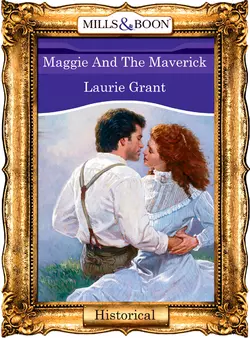Maggie And The Maverick

Laurie Grant
Тип: электронная книга
Жанр: Современная зарубежная литература
Язык: на английском языке
Стоимость: 382.20 ₽
Статус: В продаже
Издательство: HarperCollins
Дата публикации: 16.04.2024
Отзывы: Пока нет Добавить отзыв
О книге: You Just Couldn′t Count On A Woman That′s what Garrick Devlin believed when his wife deserted him after the war. Now he′d been deceived by a woman – again. The man he′d hired for his Texas newspaper had turned out to be a meddlesome female and a Yanker to boot! But her fiery beauty still attracted him, though he knew perfectly well that a woman couldn′t be trusted… .Love saw with the heart, not the eyes. And Maggie′s heart longed for Garrick Devlin and his young son. But would Garrick ever learn to trust her? Or would a foolish liaison from her past forever destroy their newfound chance at happiness?